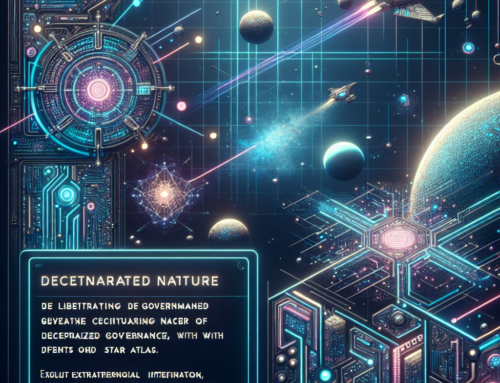Star Atlas: Exploring Religious Freedom in Space

Exploring Religious Freedom in Star Atlas: A New Frontier in Space
In the vast digital universe of Star Atlas, players aren’t just building fleets and mining resources; they’re exploring deeper themes of identity, existence, and yes, even religious freedom. As a Solana validator and an analytics platform dedicated to Star Atlas, Titan Analytics delves into how this game reflects our real-world values.
The Context of Religious Freedom
Religious freedom is a fundamental human right, allowing individuals to practice, change, or share their beliefs without fear of persecution. As societies evolve, they grapple with the balance between tradition and innovation. In Star Atlas, players create their own societies, complete with cultural norms and belief systems.
A Universe of Diverse Beliefs
In Star Atlas, players can forge alliances and create civilizations with distinct ideological beliefs, ranging from technological worship to nature reverence. This diversity mirrors the real-world collage of religious practices, allowing players to experience a range of belief systems.
The game creates a space for exploration and debate around what religious freedom means. Can a digital universe where players control their destinies provide a sanctuary for various beliefs? Absolutely! Star Atlas encourages cooperation and negotiation among different factions, fostering dialogue that reflects the complexities of religious coexistence.
Mechanisms Supporting Religious Freedom
-
Decentralized Governance: Star Atlas employs a decentralized autonomous organization (DAO) structure, allowing participants to influence the governance of their faction. This promotes a sense of collective responsibility and respect for individual beliefs, as players come together to make decisions that affect their communities.
-
Customizable Factions: Players can create and join factions that align with their personal beliefs. Whether it’s a faction that emphasizes technological supremacy or one that values harmony with nature, these customizable groups allow players to express their beliefs freely.
- In-game Economy: The game’s economy supports various expressions of belief through trade, alliances, and competition. A society that champions religious freedom can thrive economically, showcasing how belief systems fuel in-game interactions.
The Importance of Dialogue and Community
Star Atlas not only offers a canvas for personal beliefs but also fosters dialogue among players. In-game interactions can lead to discussions about belief systems, creating a dynamic community where players challenge and learn from each other.
This interaction is crucial in understanding how belief structures fit into a larger narrative, promoting empathy and mutual respect—two fundamental aspects of religious freedom.
Conclusion
As we venture deeper into the age of digital expression through platforms like Star Atlas, exploring themes like religious freedom becomes increasingly relevant. By merging gameplay with complex societal themes, Star Atlas provides a unique environment for players to engage with their beliefs and the beliefs of others.
To delve deeper into Star Atlas data modules and enhance your gameplay experience, visit Titan Analytics Star Atlas data modules. If you have any questions or need assistance, feel free to contact Titan Analytics.
Happy exploring!




